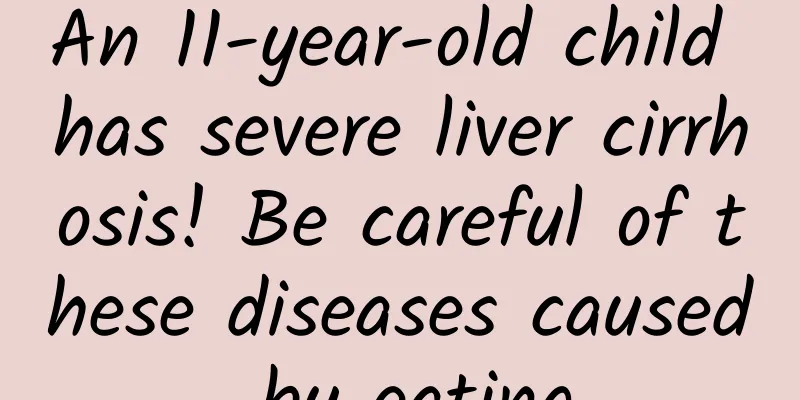"Good Cancer" - Thyroid Cancer

|
In my country, there are more and more thyroid cancer patients, and most patients will choose to have surgery to remove the tumor in time. Researchers have found that thyroid cancer has a good prognosis overall and a relatively high survival rate. Data show that the 10-year survival rates of papillary carcinoma, follicular carcinoma, and medullary carcinoma are 93%, 85%, and 76%, respectively. In general, the risks and harms of thyroid cancer to the human body are relatively low, so both professionals and the general public call thyroid cancer a "good cancer." 1. What are the symptoms of thyroid cancer? Patients with early thyroid cancer have no obvious symptoms, but as the disease progresses and the tumor grows, patients can feel a lump in the neck that is hard and uneven in surface. Generally, they do not feel pain, and their range of motion is limited. Sometimes, they feel ear pain. If the trachea or esophagus is compressed, it will cause breathing difficulties or swallowing difficulties. Hoarseness will occur when the tumor compresses or invades the recurrent laryngeal nerve. Tumor metastasis can cause local lymph node enlargement in the neck, chest tightness and shortness of breath, etc. 2. Why do people get thyroid cancer? Although the cause of this disease is unclear, researchers believe that it may be related to iodine intake, radiation, gender, genetics, and family history. Follicular thyroid cancer is common in areas where the diet is iodine-deficient, and a high-iodine diet may be associated with the occurrence of papillary thyroid cancer; radiation exposure, especially radiation exposure during childhood, increases the risk, including X-rays, CT, and radiotherapy; the incidence of thyroid cancer in women is almost three times that of men; if a parent or sibling in the family has had thyroid cancer, the risk of this disease will also be higher. 3. How to detect thyroid cancer early? Thyroid cancer will not have obvious symptoms in the early stage. Clinical experience tells us that regular physical examinations and ultrasound examinations are the only way to detect thyroid cancer in the early stage. When ultrasound examinations reveal solid nodules, nodule calcification, etc., thyroid cancer should be highly suspected, and further detailed examinations such as puncture under the guidance of color Doppler ultrasound should be performed for early diagnosis and treatment. 4. What are the treatments for thyroid cancer? Thyroid cancer grows relatively slowly, so the prognosis is good. There are several treatment options: (1) Surgical treatment: Except for undifferentiated cancer, surgical treatment is generally recommended after the diagnosis of thyroid cancer. However, for patients with micro-cancers smaller than 5 mm, located in the gland, and without risk factors such as cervical lymph node metastasis, if they do not want surgery, close dynamic observation can be considered; patients who cannot tolerate anesthesia, have abnormal cardiopulmonary function, are elderly, or suffer from other serious diseases can temporarily not undergo surgery. (2) Radioiodine therapy: The purpose of adjuvant therapy with iodine G131 is to destroy differentiated thyroid cancer lesions that have not been confirmed by imaging, thereby reducing the risk of disease-specific recurrence and death. Therefore, adjuvant therapy with iodine G131 can be performed based on the size of the tumor, the thoroughness of the surgery, the relationship between the tumor and surrounding tissue invasion, and lymph node metastasis. (3) Endocrine therapy: Since hypothyroidism may occur after thyroid cancer surgery, oral thyroid hormone supplementation should be taken in a timely manner. (4) Traditional Chinese Medicine Treatment: In clinical practice, Chinese medicine is combined with other herbs for treatment based on the patient's disease condition, physical condition, and symptoms. Some patients may experience weakness, sweating, poor sleep, or irregular bowel movements after surgery. In this case, traditional Chinese medicine can be used to regulate the above symptoms and restore the balance of yin and yang. For patients with more serious thyroid cancer, appropriate softening and dispersing drugs can be used on the basis of syndrome differentiation and treatment to prevent recurrence and metastasis. |
>>: Don't panic if you have breast pain. It's important to find the cause.
Recommend
Can I take motherwort paste after miscarriage?
After a woman has a miscarriage, it will have a c...
[Medical Q&A] Do all uterine fibroids require surgery? How long after surgery can I prepare for pregnancy?
Planner: Chinese Medical Association Reviewer: Wa...
Symptoms of pregnancy include coccyx pain
Many women begin to experience various symptoms a...
How to treat pelvic inflammatory mass
Pelvic inflammatory disease is an inflammation ca...
Can dysmenorrhea be treated?
Dysmenorrhea refers to the abdominal pain that wo...
Will progesterone drop if the fetus stops
During pregnancy, progesterone plays an important...
How to identify breast lumps
Women's breasts are rich in glands and are ea...
People's Court Daily: Beware of the "beauty trap" of weight loss chocolate
"Are you still worried about losing weight? ...
What are the consequences of girls staying up late?
With the development of Internet technology and t...
What kind of exercise can I do to maintain my uterus?
If we want to make our body healthier, we must pa...
Reasons why women always feel the urge to urinate
Many female friends who have had sex often feel t...
How to protect your eye health while staying at home
This is the 3859th article of Da Yi Xiao Hu How t...
What are the reasons for the shrinking uterus?
In fact, there is a certain relationship between ...
My second child has had spotting for a day and no labor pains?
With the opening of the second-child policy, many...
How to set the sister's WeChat as the WeChat ringtone? Sister's WeChat notification tone Baidu Cloud link
Sister WeChat is coming is a very popular DJ song...









